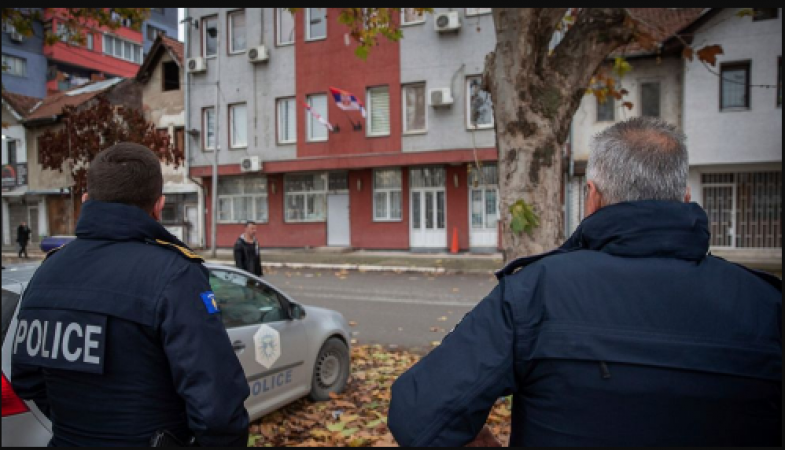
Serbia: The prime minister of Serbia claimed on Friday that the country's leadership was on the verge of requesting the sending of security forces to Kosovo because the lives of the minority Serb population there were in danger. The deployment of Belgrade's forces back in the formerly Serbian province could significantly raise regional tensions.
Officials from Serbia assert that a U.N. Approximately 1,000 Serb troops are permitted to return to Kosovo under a resolution that officially ended the nation's bloody crackdown against the majority Kosovo Albanian separatists in 1999. To put an end to the conflict and force Serbia's troops out of Kosovo, which proclaimed independence in 2008, NATO bombed Serbia.
It would be necessary for the NATO-led peacekeepers who have been in Kosovo since the war to give the go-ahead for Serb troops to enter the area, which is highly unlikely given that doing so would essentially mean turning over security of Kosovo's northern regions, which are home to Serbs.
Also Read: first Super Bowl victory of Tom Brady's
4,000-strong KFOR force, led by Serbian Prime Minister Ana Brnabic, was accused of failing to protect Serbs from alleged harassment by Kosovo's security forces. She also suggested that 1,000 Serb officers should return to Kosovo.
Albin Kurti, the prime minister of Kosovo, was charged with pushing the area "to the edge" of yet another conflict.
Because KFOR is not performing its duties, we are close to requesting the return of our forces to Kosovo under Resolution 1244, according to Brnabic. Serbs, including kindergarten-age children, "do not feel safe and are in danger physically and in terms of their lives."
Any such action by Serbia, according to Kurti's office, would be "an act of aggression" and a sign of "Serbia's tendencies to destabilise the region."
In response to a request for comment from the AP, Kurti's office stated via email, "Kosovo is an independent and sovereign country." Any attempt to violate that is considered an act of aggression.
Kurti's office stated that "there was oppression that led to genocide in Kosovo" the last time Serbian police and military were in Kosovo, prior to the end of the 1999 war. An international humanitarian intervention was made to promote peace and expel them from Kosovo.
Kosovo's president, Vjosa Osmani, responded to the statements from Belgrade by saying that "no Serb soldier or police officer would set foot on Kosovo's soil again."
Osmani stated on social media that Serbia's "open threat for police and military aggression testifies that the hegemonic policy continues in that state." "The entire democratic world should categorically reject that and oppose it."
Also Read: Xi Focus A brief timeline of Chinese presidents COVID19 responses
The 576 Serb police officers who resigned a month earlier have been partially replaced, according to a European Union mission tasked with assisting Kosovo's institutions for upholding the rule of law, with 134 police officers from Poland, Italy, and Lithuania.
In close coordination with the Kosovo Police and NATO/KFOR, the EU's Rule of Law Mission in Kosovo (EULEX) told the Associated Press that it has increased reconnaissance patrols, including on foot, in "all northern municipalities."
But it asserted that it couldn't take the place of the Kosovo Police.
The local population, whose safety and security are at risk as a result of the current situation, is the primary beneficiary of the parties' responsible actions and policies, according to EULEX.
Tensions have been high in Kosovo since it proclaimed independence from Serbia despite attempts by the European Union and U.S. officials to defuse them. Serbia, supported by its allies Russia and China, has refused to recognise Kosovo's statehood.
A day after unidentified gunmen lightly hurt a Kosovo law enforcement officer, the demand for the Serb troop deployment was made. A snap election is scheduled for December 28 in northern Kosovo's Serb-dominated areas, where the Kosovar police have recently increased their presence.
A few election centres were damaged earlier this week, and gunfire was heard in those communes, raising concerns about the potential for further escalation of the long-simmering tensions.
Early in November, Serbian lawmakers, prosecutors, and police officers in Kosovo's northern municipalities resigned from their positions as local officials in response to the Kosovo government's decision to outlaw licence plates issued by Serbia.
Kosovo and Serbia came to an agreement later in the month under EU mediation and with direct support from the United States, whereby Serbia would stop issuing the licence plates currently used in Kosovo and the Kosovo government would stop taking additional steps to prevent the re-registration of vehicles.
Also Read: Joe Biden's speech will be in Hindi! Advisory Commission accepts Indian leader's appeal
Serbia and Kosovo have received warnings from the EU that in order to be eligible for membership, they must settle their conflict and normalise their relations.
NATO Secretary-General Jens Stoltenberg has said that the NATO-led mission in Kosovo "remains vigilant."